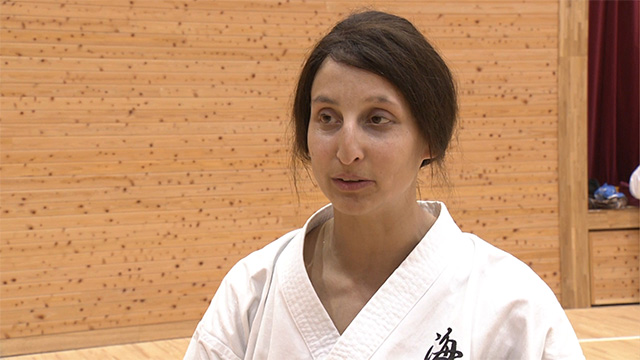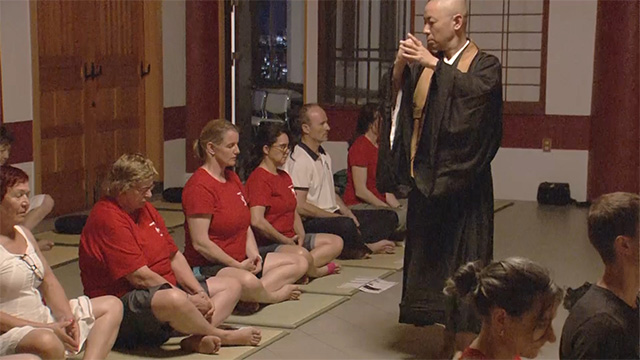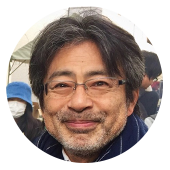There are said to be about 130 million karate practitioners worldwide. A group from Switzerland visited Okinawa in southwestern Japan on a package tour for a 10-day course in mid-April.

The tour was organized by Soraya Valleret, who teaches karate with her husband to 300 students at three schools they own in Switzerland. She always wanted to learn the original form of karate in its birth place.
More than 60 students, both male and female, ranging from novices to dan holders, expressed interest in the tour, a first for their schools. Its objective was to master techniques in the birth place of karate and to learn about things they can't learn in their home country, including its history and people's views on it.

Karate was born about 500 years ago as a form of self-defense for the warrior class of the Ryukyu Kingdom. As Japan modernized itself at the end of the 19th century, karate spread across the country and then was introduced abroad.
An increasing number of foreigners are visiting Okinawa over the past few years following the inclusion of the sport in the Tokyo Olympics.
The Swiss tour participants practiced for 3 hours, from 9 AM to noon daily for 10 days at the Okinawa Karate Kaikan, which opened in 2017. Their instructor was 63-year-old Yusuke Onaga, a 7th-dan holder who's practiced karate for over 50 years. Onaga is a karate legend in Okinawa. He won in the heaviest weight category in a National Athletic Meet in his thirties and has instructed several hundred people. He has also travelled abroad to teach foreigners, but has never taught a group of so many practitioners of different levels.

Asked about karate tours, Onaga said he has to be a professional with ample knowledge and techniques because he teaches students from around the world. He is eager to promote the authentic karate he's learned and is excited to think about what kind of students he will be teaching next.
Onaga taught the group kata, or forms of movements which make up the very basics of karate. The students who learned karate abroad are not doing them right -- not even Valleret. Onaga went from one student to next and adjusted the positions of their hands and feet. The students couldn't understand the minute differences at first, but as the days went by, their kata gradually improved.

Karate techniques were not the only thing taught during the tour. The students visited a temple in Naha city one day in the latter half of the tour to practice Zen meditation. It helps to build mental strength, something needed to practice karate. The chief priest taught them how to meditate in a 2-hour session. They were told that the most important thing is to clear the mind by discarding all earthly thoughts -- that helps prepare mentally for practicing karate.
But few participants were able to sit on the floor cross-legged, the posture taken during meditation. Valleret said that she's practiced karate for over 30 years but was surprised to learn that Zen meditation spiritually prepares oneself for karate.
Toward the end of the tour, they visited some spots they had been keen to go to. One was a monument dedicated to people who made great contributions to karate and the graves of karate founders who established the martial art about 100 years ago. They visited the graves in a quiet residential area, offered flowers and incense and demonstrated kata to show respect to the founders.

One of the participants was Derin Uyar, a university student. "I learned karate in Switzerland and have a black belt," he said. "But I realized I was just mimicking karate. I learned the spirit of karate in Okinawa, from how to use the body to what kind of attitude should be taken toward it." Uyar said that everything about his karate changed during the tour.
Major travel agencies have started to offer karate tours to Okinawa since early this year.
As the Tokyo 2020 Olympics approaches, there's no question that an increasing number of karate enthusiasts will continue to head to Okinawa.

